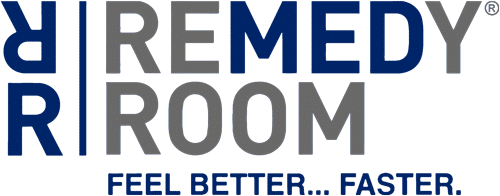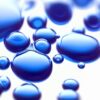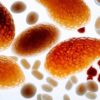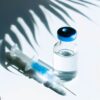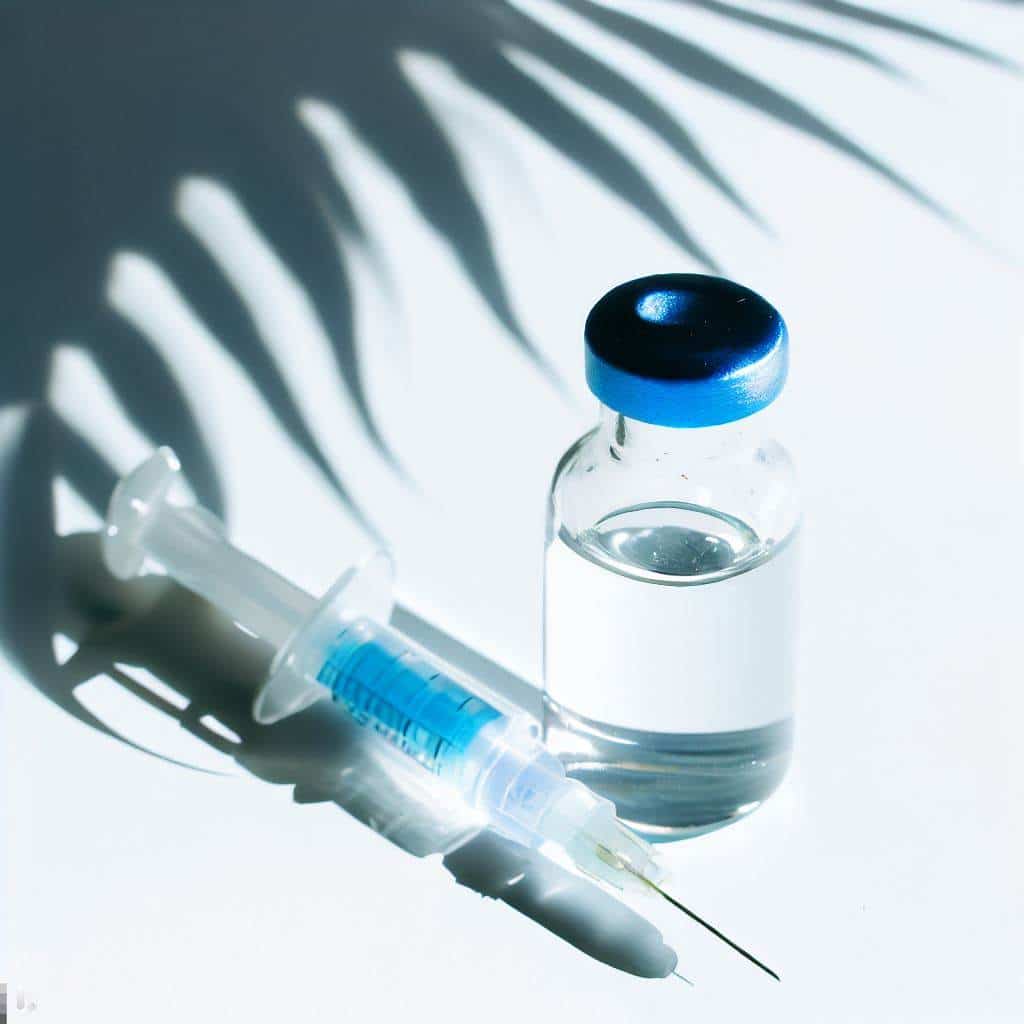
As we age, our bodies undergo a range of changes, both physical and mental. From wrinkles and gray hair to forgetfulness and decreased mobility, these changes can impact our quality of life and well-being. While there is no magical fountain of youth, there are several ways we can help support our bodies as we age. One of these ways is through NAD+ injection therapy.
NAD+ injection therapy can help boost NAD+ levels, which has been shown to have a range of anti-aging benefits, including increased longevity, improved DNA repair, enhanced neurotransmitter communication, better blood sugar control, and reduced risk of neurodegenerative diseases.
Longevity
One of the most exciting potential benefits of NAD+ injection therapy is its ability to support longevity. A study published in the journal Cell Metabolism found that boosting NAD+ levels in mice helped extend their lifespan by up to 16%. While more research is needed to determine if this same effect occurs in humans, the results are promising.
DNA Repair
NAD+ is also essential for DNA repair, a process that becomes less efficient as we age. By boosting levels of NAD+, we can help support our body’s natural DNA repair mechanisms, which can help reduce the risk of age-related diseases like cancer.
Neurotransmitter Communication
NAD+ plays a crucial role in neurotransmitter communication, which is essential for proper brain function. By boosting NAD+ levels, we can help support healthy neurotransmitter communication, which may help reduce the risk of neurodegenerative diseases like Alzheimer’s and Parkinson’s.
Blood Sugar Control
NAD+ also plays a role in blood sugar control. Research has shown that NAD+ helps regulate the activity of an enzyme called SIRT1, which is involved in insulin sensitivity and glucose metabolism. By boosting NAD+ levels, we can help support healthy blood sugar control, which is especially important as we age and become more at risk for conditions like diabetes.
Neurodegenerative Diseases
Finally, NAD+ injection therapy may also help reduce the risk of neurodegenerative diseases like Alzheimer’s and Parkinson’s. In a study published in the journal Nature, researchers found that boosting NAD+ levels in mice helped improve their cognitive function and reduce the accumulation of abnormal proteins in the brain, which are associated with these diseases.
In conclusion, NAD+ injection therapy offers a range of potential benefits for those looking to support their bodies as they age. From increased longevity to improved DNA repair, enhanced neurotransmitter communication, better blood sugar control, stronger immune system, and reduced risk of neurodegenerative diseases, the benefits are clear. While more research is needed to fully understand the effects of NAD+ injection therapy, the results so far are promising.
Want to learn more?
Want To Learn More?
Take a step towards optimizing your health and vitality. Contact The Remedy Room today to learn more about the incredible benefits of NAD+ treatment. Whether you’re seeking enhanced energy, improved mental clarity, or overall wellness support, our experienced team can guide you through the transformative power of NAD+ therapy. Don’t wait any longer to explore this cutting-edge approach. Book your NAD+ treatment now by reaching out to The Remedy Room. Unlock your full potential with NAD+ and embark on a journey towards a healthier, revitalized you. Contact us today and discover a new level of well-being.
Frequently Asked Questions
Can NAD Precursors Be Taken As An Oral Supplement?
NAD precursors are substances that the body can convert into nicotinamide adenine dinucleotide (NAD), a coenzyme involved in various cellular processes, including energy production and DNA repair. Some common NAD precursors include niacin (vitamin B3), nicotinamide riboside (NR), and nicotinamide mononucleotide (NMN). These precursors can be taken as dietary supplements to support NAD levels in the body.
Yes, NAD precursors can be taken as oral supplements. In fact, taking an oral NAD supplement is one of the common methods for consuming NAD precursors. NAD precursors like nicotinamide riboside (NR) or nicotinamide mononucleotide (NMN) are available in the form of capsules or powders that can be taken orally. When ingested, these precursors are metabolized by the body and converted into NAD through enzymatic reactions. This allows for the natural synthesis and increase of NAD levels within the body over time. However, it’s important to consult with a healthcare professional before starting any new supplementation regimen to determine the appropriate dosage and ensure it aligns with your individual health needs.
Is A NAD IV Better Than NAD Supplementation?
The choice between NAD IV (intravenous) administration and NAD supplements depends on various factors, including individual circumstances, goals, and the guidance of a healthcare professional. Both approaches have their own advantages and considerations.
Receiving NAD injection involves the direct infusion of NAD into the bloodstream, bypassing the digestive system. This method allows for rapid delivery and immediate availability of NAD to the cells. It can provide a quick and significant boost in NAD levels, potentially leading to more immediate effects. A NAD IV drip is often used in clinical settings and may be recommended for specific health conditions or situations that require a higher NAD dose or rapid replenishment.
On the other hand, NAD supplements, typically in the form of oral capsules or powders, are taken by mouth and undergo digestion and absorption in the gastrointestinal tract. NAD precursors, such as nicotinamide riboside (NR) or nicotinamide mononucleotide (NMN), are commonly used as supplements to support the body’s natural NAD production. While NAD supplements may take longer to elevate NAD levels compared to IV administration, they offer convenience and can be integrated into daily routines.
It’s important to note that the efficacy and optimal approach can vary depending on individual needs and health conditions. Consulting with a healthcare professional can help determine which method is best suited for your specific situation and goals. They can consider factors such as dosage, absorption, bioavailability, and any potential interactions or contraindications to guide you in making an informed decision.
Are There Any Side Effects To NAD+?
NAD (nicotinamide adenine dinucleotide) is generally considered safe when used appropriately and at recommended dosages. However, like any substance, there can be potential side effects, although they tend to be rare and mild. Some reported side effects associated with NAD supplementation or NAD IV therapy may include:
- Nausea or upset stomach: Some individuals may experience gastrointestinal discomfort, including nausea, stomach cramps, or diarrhea.
- Flushing or skin redness: NAD can cause a temporary flushing or redness of the skin, which is generally harmless and subsides quickly.
- Dizziness or lightheadedness: In some cases, individuals may experience transient dizziness or lightheadedness.
- Headache: Headaches can occur as a temporary side effect in some individuals, although they are usually mild.
- Allergic reactions: While rare, some individuals may have an allergic reaction to NAD, resulting in symptoms such as itching, rash, or swelling.
It’s important to note that the occurrence and severity of side effects can vary from person to person. If you experience any persistent or concerning side effects after NAD supplementation or therapy, it is advisable to consult with a healthcare professional.
Additionally, it’s crucial to follow proper dosing instructions, seek guidance from a qualified healthcare practitioner, and disclose any pre-existing medical conditions or medications you are taking before starting NAD supplementation or NAD IV therapy.
What is the science behind NAD+?
NAD+ (nicotinamide adenine dinucleotide) is a coenzyme that plays a crucial role in many bodily functions, including improving metabolic pathways, repairing DNA damage, turning back the clock on issues created by oxidative stress, and neurotransmitter communication. Unfortunately, as we go through the aging process, our bodies produce less NAD+, which can contribute to a range of health problems, including age-related diseases.
